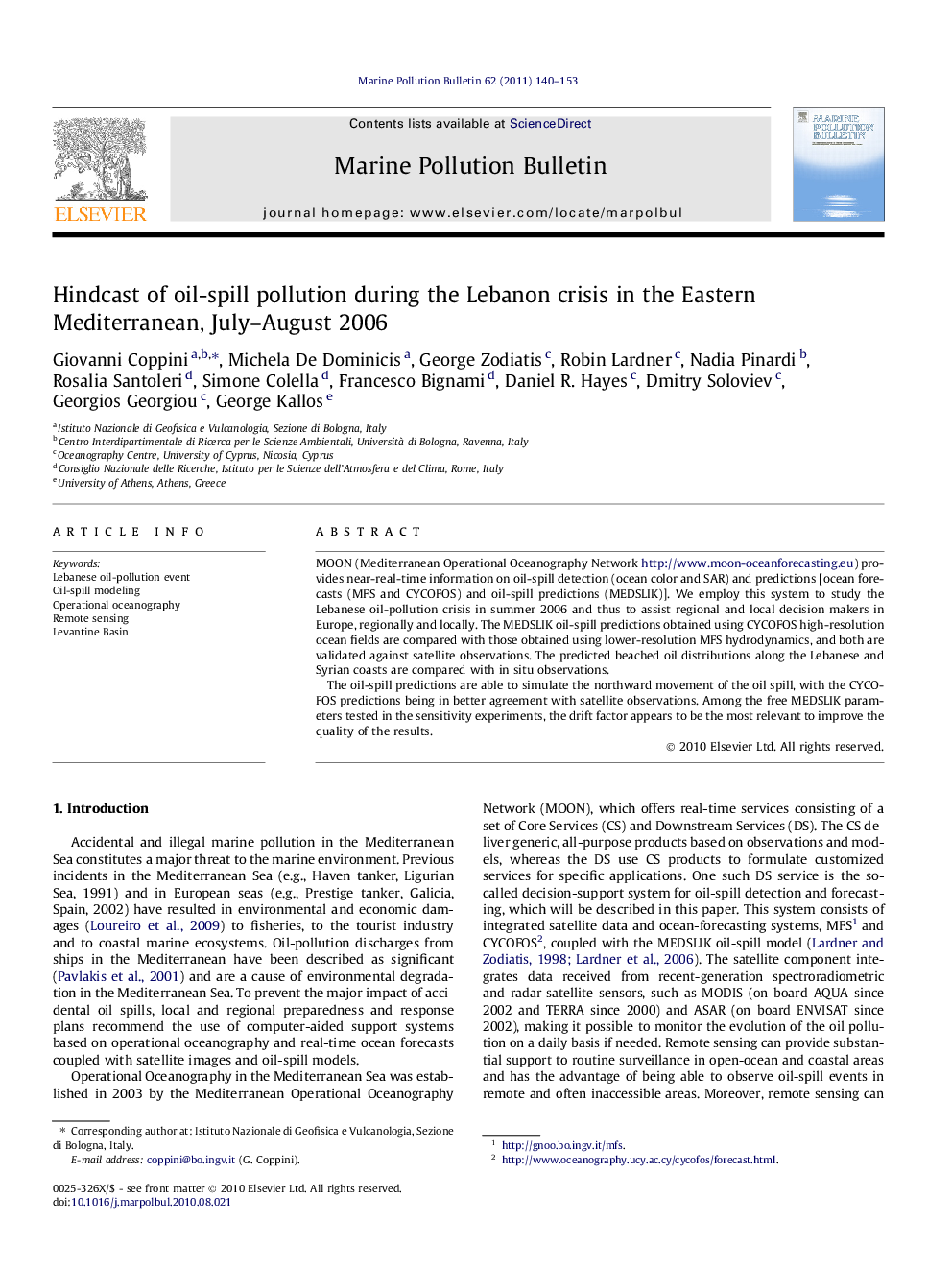| Article ID | Journal | Published Year | Pages | File Type |
|---|---|---|---|---|
| 6361838 | Marine Pollution Bulletin | 2011 | 14 Pages |
MOON (Mediterranean Operational Oceanography Network http://www.moon-oceanforecasting.eu) provides near-real-time information on oil-spill detection (ocean color and SAR) and predictions [ocean forecasts (MFS and CYCOFOS) and oil-spill predictions (MEDSLIK)]. We employ this system to study the Lebanese oil-pollution crisis in summer 2006 and thus to assist regional and local decision makers in Europe, regionally and locally. The MEDSLIK oil-spill predictions obtained using CYCOFOS high-resolution ocean fields are compared with those obtained using lower-resolution MFS hydrodynamics, and both are validated against satellite observations. The predicted beached oil distributions along the Lebanese and Syrian coasts are compared with in situ observations.The oil-spill predictions are able to simulate the northward movement of the oil spill, with the CYCOFOS predictions being in better agreement with satellite observations. Among the free MEDSLIK parameters tested in the sensitivity experiments, the drift factor appears to be the most relevant to improve the quality of the results.
Research highlights⺠MOON oil-spill forecasting systems provided relevant info for the Lebanese crisis. ⺠Satellite products provided valuable information also for models validation. ⺠Integration of different satellite sensors is shown to be a key element. ⺠Sensitivity experiments to different deterministic oil-spill drift factors were done. ⺠The higher resolution CYCOFOS currents better represent coastal trapping of oil.
